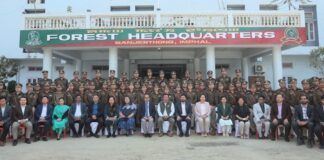Guwahati: An indigenous, traditional practice of aerosol inoculation (vaccination through air-borne microbes) to prevent tuberculosis, with its roots in the philosophy of Vedic Altruism or JivaUpakarTantra, has been proved to hold a scientific basis in a study conducted over 15 years.
The KaviKrishna Laboratory and its US-based partner, Thoreau Lab, carried out the meticulous study since 1994, with clinical practice conducted in the Kamrup (rural) district of Assam, and later confirmed through mouse model.
The study was initiated after Dr Bikul Das, director of KaviKrishna Lab, learnt of a unique method of aerosol inoculation to prevent TB, being practised by a traditional healer in the Sualkuchi area of Kamrup (rural) district, JagatGhora.
The healer and his associate claimed that they were maintaining a tradition of JivaUpakarTantra, an indigenous knowledge system based on sacred textbook of ancient Kamarupa.
Under the traditional practice, TB patients were allowed to attend Kirtan chanting in Namghars, and also in the community so that they can initiate aerosol inoculation among the other attendees and thereby, lead to ‘herd immunity’ against TB in the area.
According to the healer, TB patients were spreading good nigudah (a micro life as per Jain and Ayurvedic text) in their aerosol that protects the community from TB.
The study has been published in the preprint serverbioRxiv, Cold Spring Harbor Lab, New York because of its significance in the ongoing COVID19 pandemic and is now undergoing peer-review in a major scientific journal.
The result of this study is also summarized in the review article recently published in Frontiers in Immunology.


